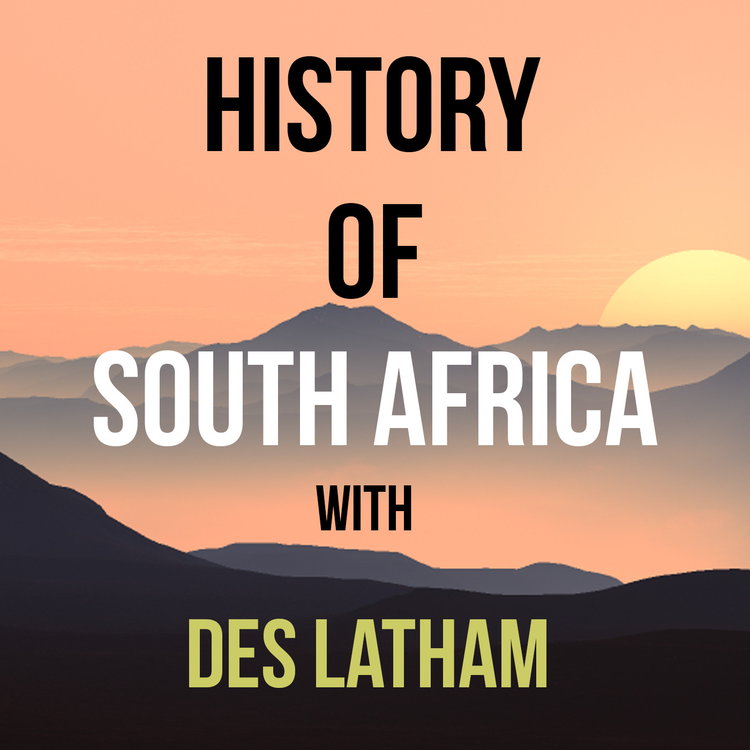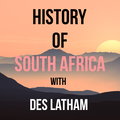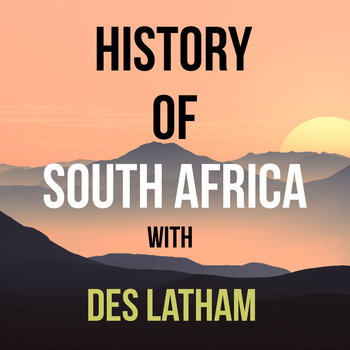
Episode 90 – Slaves, Somerset and the SA Commercial Advertiser
Loading player...
This is episode 90 and it is 1823. The small coastal harbour town of Port Elizabeth had been founded but it still had no proper jetties, no lighthouse, nor a breakwater. Passengers were forced to disembark precariously through the angry surf.
The place was described as an “ugly, dirty, ill-scented, ill-built hamlet…”
Resembling some said, the worse fishing villages on the English coast. It also was known as disorderly, drunken and a place of immorality. Further up the coast, two separate towns had been founded on the Kowie River, settlers on the west bank named their little hamlet Port Kowie, and those on the east called their equally small hamlet Port Frances after Governor Lord Charles Somerset’s daughter in law.
These days we call it Port Alfred.
Many settlers who remained in Albany were now trading deep into the interior beyond the boundaries of the colony and legally too. They bartered goods with the amaXhosa, cloth, iron utensils, beads, buttons and copper were exchanged for cattle hides, ivory and gum often at the weekly market held in Grahamstown.
Monitoring all of this were the men of the Cape Regiment, the Khoekhoe or the Cape Mounted Rifles as they became known. Lord Charles wanted his eldest son Henry to take over as OC - nothing like a military command to accelerate your place in life he thought.
As you know, Henry was not the sharpest tool in the Somerset shed and furthermore, he could not be a commander of a regiment without attaining the rank of Lieutenant Colonel and he couldn’t be promoted immediately because Lieutenant colonel Fraser was in charge. However, Fraser was seriously ill and died in October 1823. Henry of course, was appointed commander although without the necessary rank. Nepotism, corruption, poor governance. Take your pick.
By now as you know, Thomas Pringle, that Scots lad who’d been an editor in the UK then travelled to his farm in the Bruintjieshoogte with other Scots, had taken up his appointment at the SA Public Library. A man of letters, Pringle then invited a fellow Scot called John Fairbairn to help found a school to promote English language and literature in South Africa. It was to be known as the Classical and Commercial Academy, a bit like studying towards an MBA but partly in Latin.
They were joined by a Dutch Reformed clergyman and educator called Abraham Faure. By January 1823 that Pringle and Faure applied for permission to publish a monthly periodical and promised to avoid
“the discussion of all controversial or agitating topics…”
Somerset refused the request, then wrote secretly to the Secretary of State Earl of Bathurst, calling Pringle an “arrant dissenter…”
But the need for an independent voice in South Africa was obvious and George Greig who was to launch the SA Commercial Advertiser knew a good business idea when he saw one.
The place was described as an “ugly, dirty, ill-scented, ill-built hamlet…”
Resembling some said, the worse fishing villages on the English coast. It also was known as disorderly, drunken and a place of immorality. Further up the coast, two separate towns had been founded on the Kowie River, settlers on the west bank named their little hamlet Port Kowie, and those on the east called their equally small hamlet Port Frances after Governor Lord Charles Somerset’s daughter in law.
These days we call it Port Alfred.
Many settlers who remained in Albany were now trading deep into the interior beyond the boundaries of the colony and legally too. They bartered goods with the amaXhosa, cloth, iron utensils, beads, buttons and copper were exchanged for cattle hides, ivory and gum often at the weekly market held in Grahamstown.
Monitoring all of this were the men of the Cape Regiment, the Khoekhoe or the Cape Mounted Rifles as they became known. Lord Charles wanted his eldest son Henry to take over as OC - nothing like a military command to accelerate your place in life he thought.
As you know, Henry was not the sharpest tool in the Somerset shed and furthermore, he could not be a commander of a regiment without attaining the rank of Lieutenant Colonel and he couldn’t be promoted immediately because Lieutenant colonel Fraser was in charge. However, Fraser was seriously ill and died in October 1823. Henry of course, was appointed commander although without the necessary rank. Nepotism, corruption, poor governance. Take your pick.
By now as you know, Thomas Pringle, that Scots lad who’d been an editor in the UK then travelled to his farm in the Bruintjieshoogte with other Scots, had taken up his appointment at the SA Public Library. A man of letters, Pringle then invited a fellow Scot called John Fairbairn to help found a school to promote English language and literature in South Africa. It was to be known as the Classical and Commercial Academy, a bit like studying towards an MBA but partly in Latin.
They were joined by a Dutch Reformed clergyman and educator called Abraham Faure. By January 1823 that Pringle and Faure applied for permission to publish a monthly periodical and promised to avoid
“the discussion of all controversial or agitating topics…”
Somerset refused the request, then wrote secretly to the Secretary of State Earl of Bathurst, calling Pringle an “arrant dissenter…”
But the need for an independent voice in South Africa was obvious and George Greig who was to launch the SA Commercial Advertiser knew a good business idea when he saw one.

